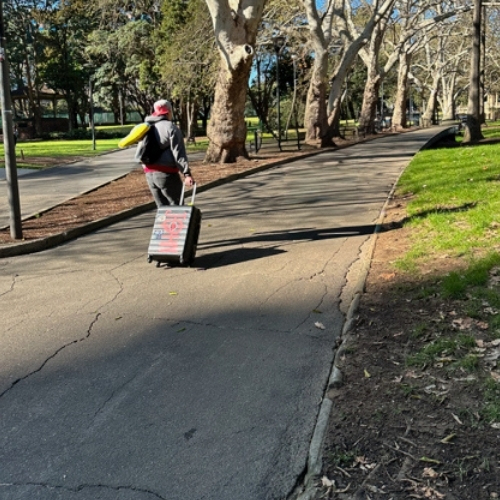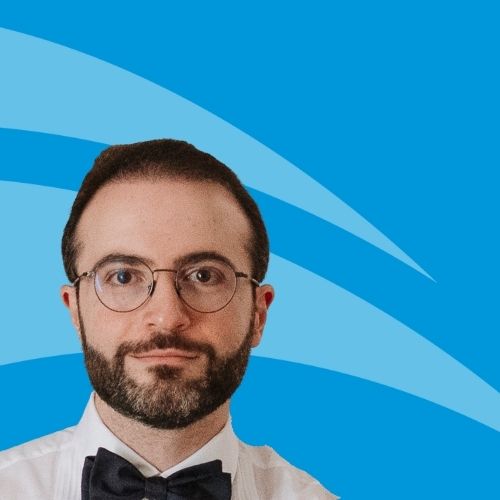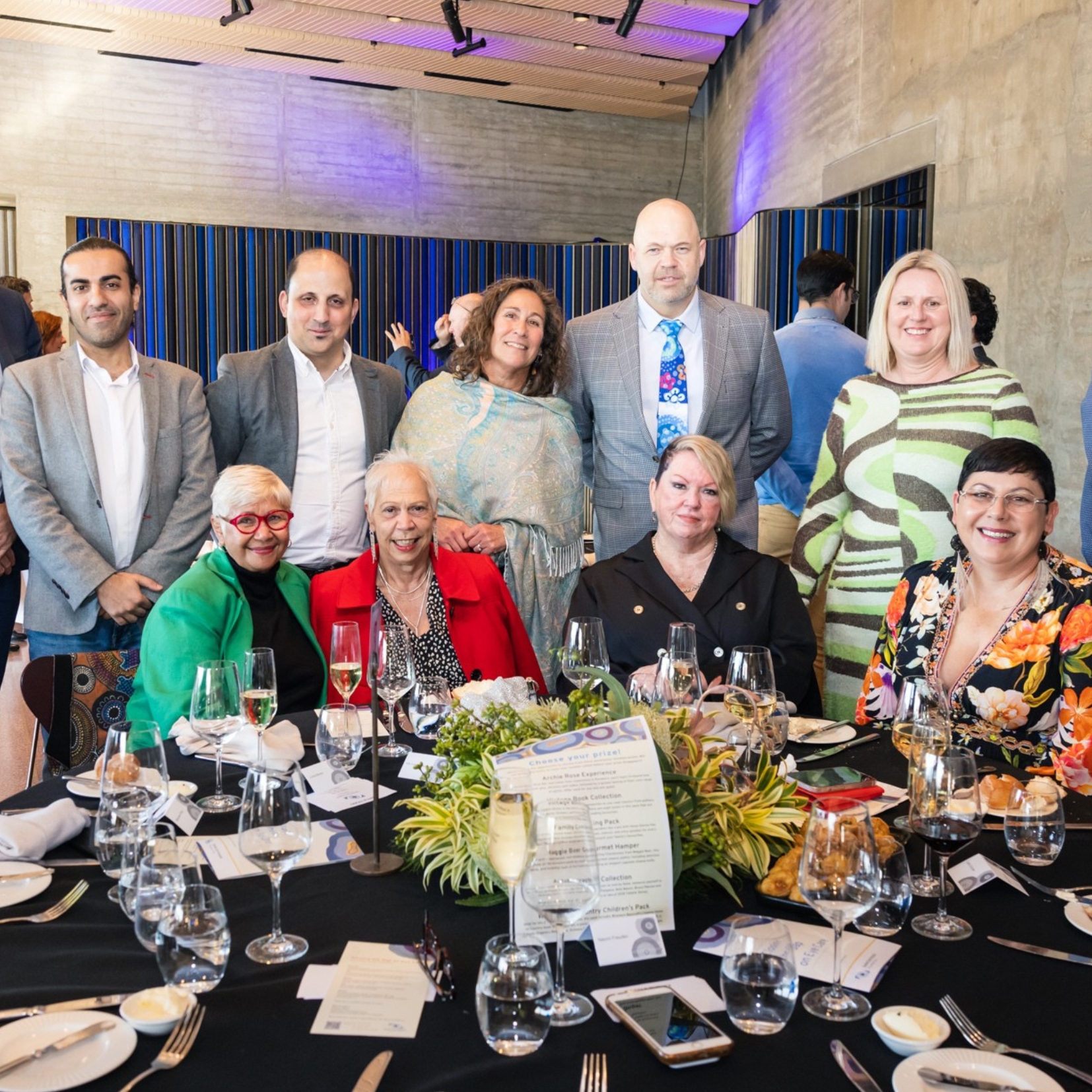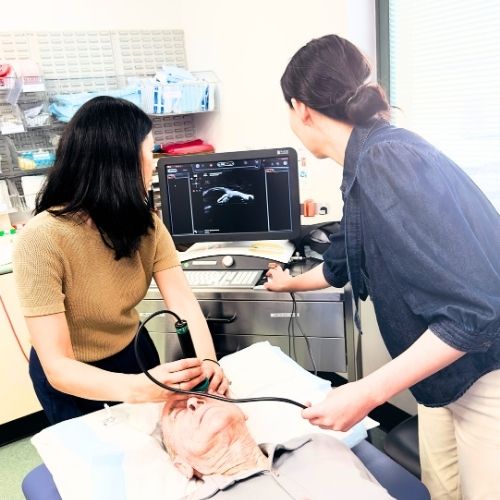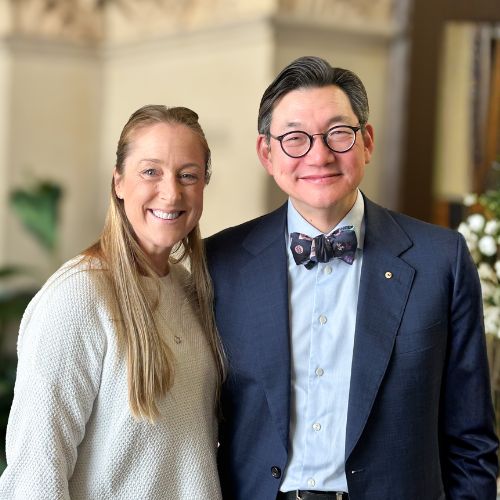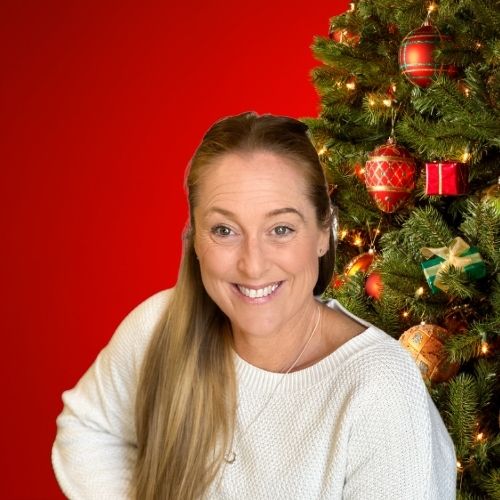Imagine the world around you is gradually fading into shadows. This is the reality for John, a resilient 70-year-old who has faced the relentless challenges of losing his sight over decades.
Now he is on a journey to regain what was lost, thanks to advancements in medical science and the generous support of the Sydney Eye Hospital Foundation community.

"It started when I was just 16," John recalls, describing the onset of severe headaches and sensitivity to sunlight. He was diagnosed with severe atopic (allergic) eye disease, a condition that has affected both eyes and shaped the course of his life.
Despite numerous treatments over the years, including surgeries, setbacks and being forced into medical retirement at the early age of 44, John has remained determined to live life to the fullest.
"I became a full-time father, and for a while, I could drive and take care of my kids," John says, reminiscing on the gradual loss of independence as his sight deteriorated. "But eventually, everything got foggier, and now all I can see is light. "
“It’s been a hard and slow process with things gradually being taken away from me; my driver’s license, reading newspapers, watching the kids play sport,” he says.

Despite the challenges, John has found solace in family and fills the many empty hours in each day with activities like exercise, audiobooks and blind lawn bowls.
Last year, John’s journey took a hopeful turn when his disease stabilised, and he became eligible for osteo-odonto-keratoprosthesis (OOKP) surgery. He was referred to Dr Tanya Trinh, an ophthalmic surgeon, who is part of a multi-disciplinary team performing the radical procedure at Sydney Eye Hospital. The OOKP unit was established in 2015 by Dr Greg Maloney who remains involved to this day.
“OOKP is one of the most complex eye operations. It involves implanting a lens within a tooth or jawbone, which is then transplanted into the eye to facilitate vision. It requires a highly specialised team of eye doctors, head and neck specialists, anaesthetists and nursing staff,” she says.
“John's blindness is so severe that he is not even eligible for a seeing eye dog, which is something I know he’d really like to combat the isolation he feels from his blindness,” says Dr Trinh. “Restoring vision in someone like him would profoundly change his life.”

In 2017, Heather who had been blind for 21 years, had OOKP surgery at Sydney Eye Hospital. For the 58-year-old mother of three, this remarkable operation was life-changing.
“I’d never seen my children, and overnight I could see blobs of colour. After five weeks I had vision,” she says.
Seven years on Heather says, “Life is easy. Life is fun!”
“Whatever I want to do, I can do now,” she says. “I’ve been camping, snow skiing – barrelling down a mountain. I’ve learned to knit, and I’ve read about 200 books. Every day is WOW!”

Funding from Sydney Eye Hospital Foundation is essential for the OOKP program’s sustainability. Generous donors have helped fund the unique equipment, skilled staff and maintaining clinics crucial for these surgeries.
“There are only around seven centres in the world offering this surgery, and having it available locally is largely thanks to the Foundation,” says Dr Trinh.
"This procedure is life-changing for patients like John who have successfully undergone it, restoring independence to vulnerable individuals in our community," says Dr Trinh.
Under the care of Dr Trinh and the team of specialists at Sydney Eye Hospital, John underwent the first stage of OOKP surgery in May 2024. To finalise the process, he will have to undergo a complex four to six hour surgery over two occasions.
"It’s been a long process losing my sight, it’s going to be a long process to get some of it back,” John muses. “But it is excellent to have all this expertise in one place close to home.”
Looking ahead, if the surgeries are successful, John dreams of enjoying simple pleasures: seeing his youngest grandchildren for the first time, reading a book, and going out independently.
"Even having just a bit of sight would mean the world," he says. “It would mean I could get a guide dog and get out of the house a bit more.”



